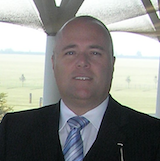 The Twin Town Challenge 2016 has almost reached its 100 car limit and STL Communications MD Brendon Cross, the event organiser, has urged anyone wanting to take part to act fast and register now.
The Twin Town Challenge 2016 has almost reached its 100 car limit and STL Communications MD Brendon Cross, the event organiser, has urged anyone wanting to take part to act fast and register now.
Last year 50 cars costing just £500 invaded France in a fun filled points based challenge to raise money for SpecialEffect. Next year organisers are doubling the event and taking 100 cars with the aim of raising twice as much for the charity.
Registrations are now open for the 2016 Twin Town Challenge which will see 100 cars costing £500 drive from Witney to its twin town of Le Touquet over a bank holiday weekend. Departing from the majestic setting of Blenheim Palace, the cars will travel to Brands Hatch for some driving challenges before heading to the tunnel and a civic reception in Le Touquet. The weekend will also include a visit to the Criox en Ternois circuit, a street party with live bands, a 'money can't buy auction' and a celebration event back at the finish in Oxfordshire .
Organiser Brendon Cross, MD of STL Communications, said: "The 2014 event raised £130,000 for SpecialEffect and made such a huge difference to this small charity. Couple that with the demand from teams to repeat the event, we decided to take 100 cars and raise £250,000 Businesses and groups of individuals can enter a team of up to four people."
SpecialEffect is an Oxfordshire-based charity that puts fun and inclusion back into the lives of people with physical disabilities by helping them to play video games.
Nick Streeter of SpecialEffect commented: "The twin Town Challenge was the biggest ever donation we have ever had and it has enabled us to employ another Occupational therapist, set up an assessment room and to help more people beat their physical disabilities to enjoy video games."
 Sponsors for the 2016 event already include Gamma, Oak, Bridle and Focus who have given generously so that all the costs are covered, meaning that every penny given by the teams goes straight to the charity.
Sponsors for the 2016 event already include Gamma, Oak, Bridle and Focus who have given generously so that all the costs are covered, meaning that every penny given by the teams goes straight to the charity.
Cross added: "I am grateful to some of STL's friends and supporters for their very valuable support in sponsoring the 2016 event."
The Twin Town Challenge 2016 will take place from 27th to 30th May 2016. With places limited to 100 cars, businesses and individuals are being encouraged to register at www.twintown16.co.uk in order to guarantee a place on the starting grid.
To find out more visit www.twintown16.co.uk or contact the organisers on 01993 220666

 Former MD of audio conferencing company Worldwide Group Paul Bailey is in a stable condition in hospital following a crash during a charity motor show in Hal Farrug, Malta, which also left 26 spectators injured.
Former MD of audio conferencing company Worldwide Group Paul Bailey is in a stable condition in hospital following a crash during a charity motor show in Hal Farrug, Malta, which also left 26 spectators injured.